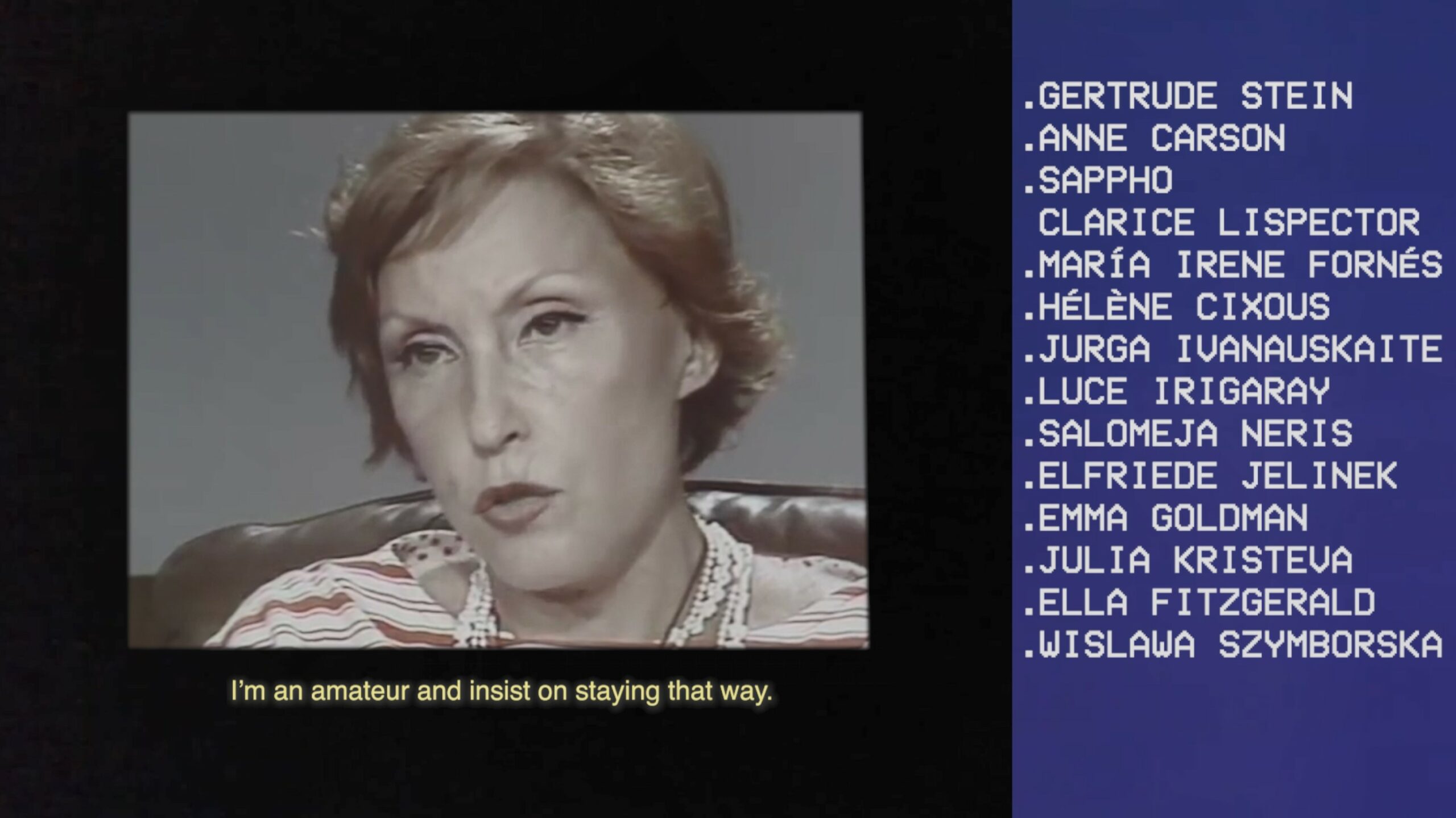postgraduate program
Scoring intimacy with discursive others
2 May-31 July 2022 / a.pass
Block II 2022 (May - July)

The Block II 2022 proposes to exercise a personal, immediate and performative relation with discourse – through autotheory, speculative history, conversation and collectivity – embodied in a weekly Score. It feeds upon the tension between one’s practice and the other, often absent other who is yet unescapable like one’s ancestor, lover, kin or friend. In other words, we are interested in how discursive beings – those that we encounter only through language – can guide us through our practices?
The Score, facilitated by Lilia Mestre, will be practised every Thursday at a.pass. There will be 9 sessions in total throughout the block and participants are recommended to engage for a minimum of 5 sessions. The Score practice is an intersubjective and collective setup that facilitates the dialogue between discourse and artistic practice by engaging in writing to each other and performing for the collective. It addresses and knits relations between the research of the participants and aims to experience and empower what “difference without separability” might be.* To start up we will read and discuss the text by Denise Ferreira da Silva as a basis for studying how co-learning and collectivity relate to us and the world we are living in.
In the beginning of the block Goda Palekaitė will propose a workshop on artistic research through intimate relations with historical characters. Roland Barthes described his associative dictionary of love and longing A Lover’s Discourse: Fragments (1978) as “the site of someone speaking within himself, amorously, confronting the other (the loved object), who does not speak.”** In the case of this workshop, the loved one who does not speak is a forgotten historical character, the inaccessible discursive other whose silence both challenges and excites. How can we accompany the displaced characters in their metaleptic movement – in their mesmerising exercise of shapeshifting from one reality to another (e.g., from historical absence and denial to presence and recognition)?***
A two week residency (June 27 – July 10) will take place in ZSenne ArtLab, downtown Brussels. The focus of the residency is on autotheory and its relation to alternative writing and performative practices in artistic research. The program includes a workshop, a reading group, and a programme of performances; it is curated by Goda and Lilia. A two-day workshop will be offered by Maria Gil Ulldemolins who will facilitate a selected library of the ground theoretical materials and methodological tools to be explored during the two weeks. It will focus on highlighting how autotheoretical narrators weave an intellectual and intimate network of relations; and consequently it will make time to read, think, and share as a collective. We invited a.pass alumni who engage with autotheory in their practice to present their recent work in a series of performances and conversations open to the public: Chloe Chignell, Aubrey Birch, Eleanor Weber, Pia Louwerens, Marialena Marouda, Flávio Rodrigo and Philippine Hoegen.
In response to the actual distressful situation of the war in Ukraine that hits after the pandemic and tops upon the a.pass loss of subsidies due to the practical implementation of right-wing politics in Belgium, we would like to open the ZSenne ArtLab for two days to voices that need to be heard. This is an open proposition to discuss with all a.pass participants.
*On difference without separability by Denise Ferreira da Silva – In 32nd Bienal de São Paulo – Incerteza Viva. Catalogue. Edited by Jochen Volz and Júlia Rebouças. São Paulo: Fundação de São Paulo, pp 57-65, 2016.
** Roland Barthes, A Lover’s Discourse: Fragments (New York: Hill and Wang, 1978), 3.
***Metalepsis, in contemporary narratology refers to a phrase or a situation from a literary text, which is used in a new, logically distinct context from its original one; a transgression of the boundaries between narrative levels.